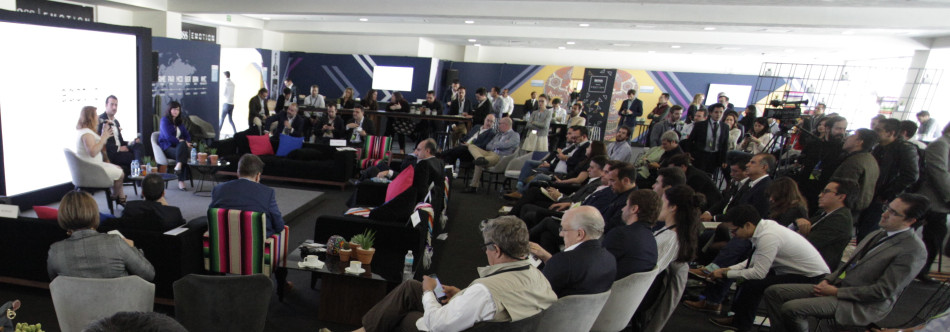Measuring Smart Mobility – Third Season of FIA Smart Cities initiative kicks off in Mexico City
Two years after its launch in Mexico City, the FIA Smart Cities programme returned to the Mexican capital for another successful Forum focusing on measurement and evaluation methods and the role of Public Private Partnerships (PPPs) in shaping smart and innovative urban policies and services.

Opening the Forum, FIA Secretary General for Automobile Mobility and Tourism Andrew McKellar underlined the aim of the initiative, “The FIA Smart Cities Forum is a platform to open the discussion and drive action on the mobility issues that affect not just our Members, but all road users. The Forum also serves to share experience about what’s working well, and how we can enhance what’s currently being done when it comes to smart and sustainable urban mobility solutions.”
OMDAI President and FIA Vice-President for Sport José Abed then hailed the success of the initiative and highlighted why such events are key for cities and Mobility Clubs. “After two years of success, and the first Forum organised here in Mexico, FIA Smart Cities has become a platform for global cooperation. Mobility is constantly evolving, and thanks to technology and the immediacy of information, we, as actors of this change, are ready to move towards a smarter, more inclusive and sustainable mobility with confidence and determination”, he said.
Former President of Mexico and FIA Environment and Sustainability Commission President Felipe Calderón commented on the sustainable mobility agenda at the heart of the Smart Cities philosophy, “To achieve sustainable mobility, public policies should be centered on people rather than vehicles.” He also talked about the key role of motor sport and Formula E in shaping the mobility of the future “Formula E is the perfect connection between mobility and sport. Thanks to the transfer of technologies developed in this championship, everyday cars are becoming cleaner.”
For many cities in Latin America, electrification and decarbonisation of vehicle fleets is an on-going concern. The Opening Panel of the Forum gave the floor to city officials who discussed strategies and best-practices in this area. In Mexico City for example, local authorities are looking to reduce carbon emissions through a range of traditional and innovative new measures. This includes expansion and further development of mass transit systems, as well as promotion of e-mobility.
But where to start? While the transition to e-mobility is a worthy aim, doing so requires assessment and evaluation of indicators for smart mobility. For Kari Eik, the Secretary General of the Organization for International Economic Relations, and Co-founder and Executive Program Director of the United Smart Cities Program, cooperation between the public and private sectors is critical in achieving this. During her keynote – ‘Measuring Smart Cities Indicators’ – she highlighted the strategic vision of the United Smart Cities, “Our strategy is building on our holistic United Smart Cities framework to work on concrete city solutions and projects together, and push new and improved models for Public-Private Partnerships (PPPs)”.
For Seleta Reynolds, General Manager, Los Angeles Department of Transportation, PPPs are a step in the right direction, but are only part of the solution. Meeting the tremendous challenges cities will face in the near future will require a tailored approach and a clear vision. For Reynolds, “urban mobility is in the midst of an exciting era of disruption and unprecedented opportunity for creativity and innovation, but companies who focus on the technology, to the exclusion of how it will integrate into the cities it serves, run the risk of duplicating the mistakes of the past. Our interest is to aggressively create new places for partnership, both inside and outside government.”
Concrete examples of this were giving during the following two panel sessions, which brought together private sector organisations and international institutions.
The Forum was capped off by the announcement of the winning start-up from the Mexico City edition of the FIA Smart Cities Global Start-Up Contest, Urbvan. For the first year, the Contest is being powered by global starr-up incubator MassChallenge.
Emphasising the FIA’s ‘Track to Road’ concept, the Forum also allowed participants to learn more about the new racing series, the Jaguar i-Pace eTrophy, presented by Panasonic Jaguar Racing Team Director James Barclay.
Find the pictures of the Forum here.


 Facebook
Facebook Twitter
Twitter






